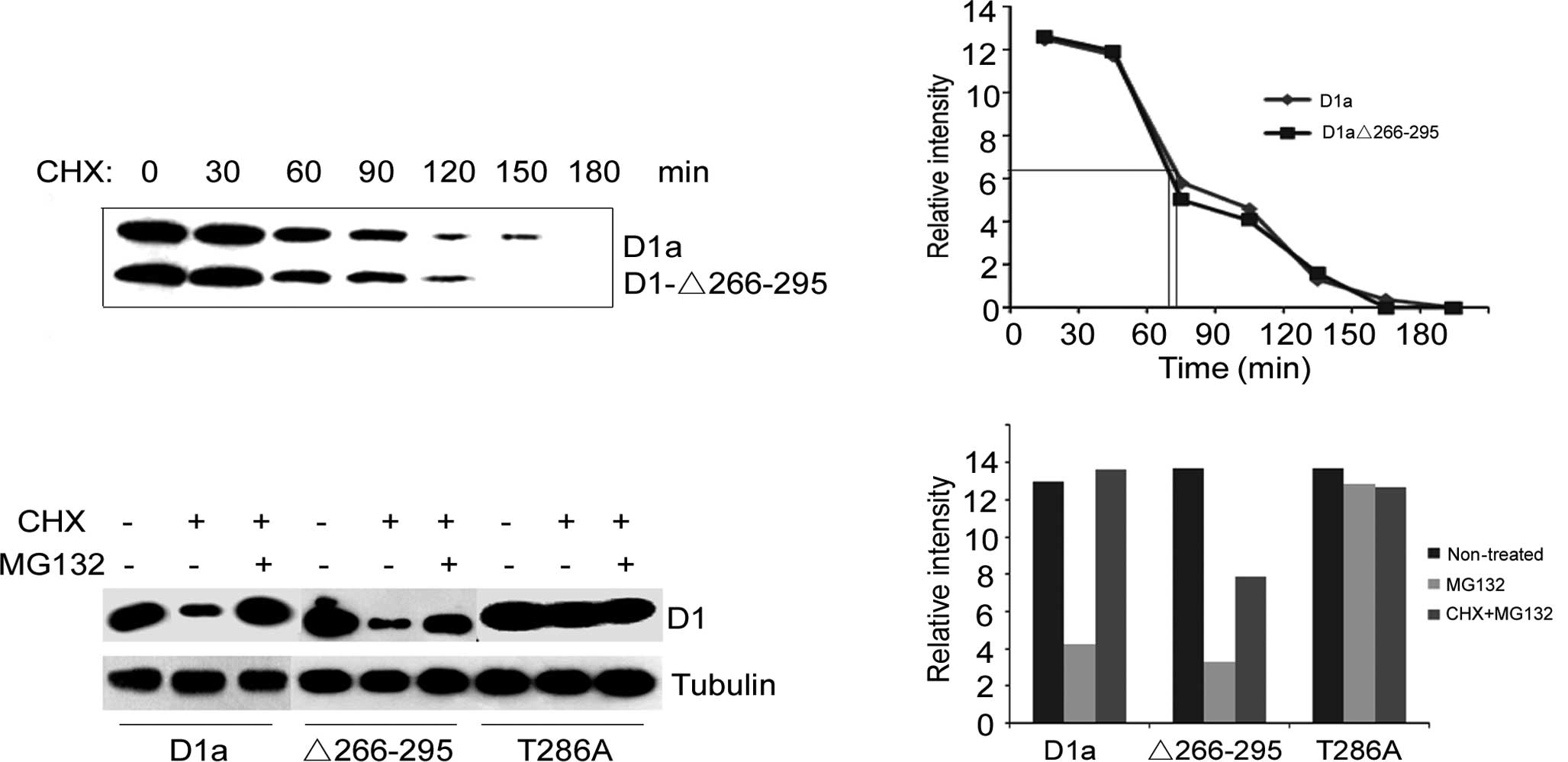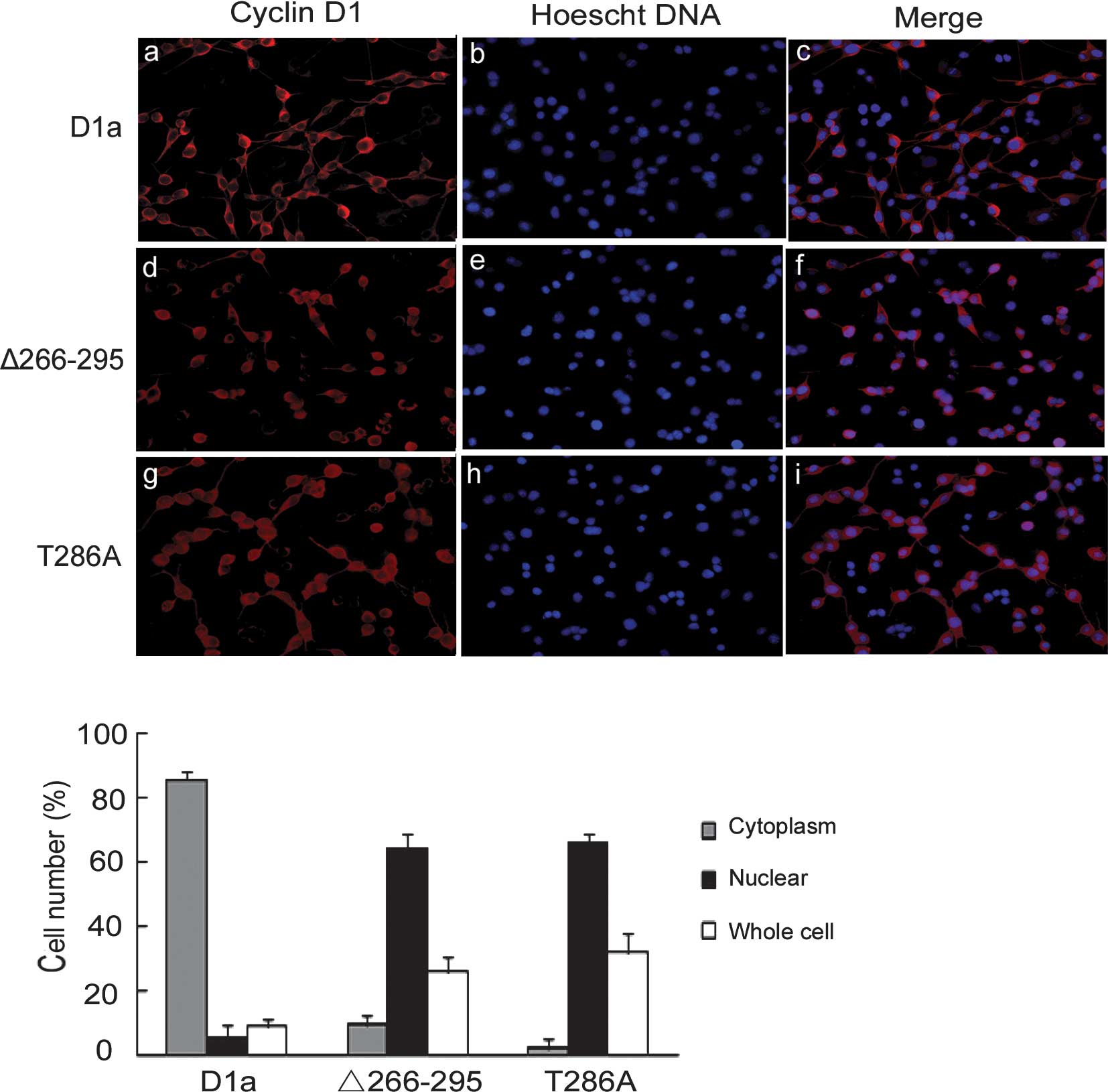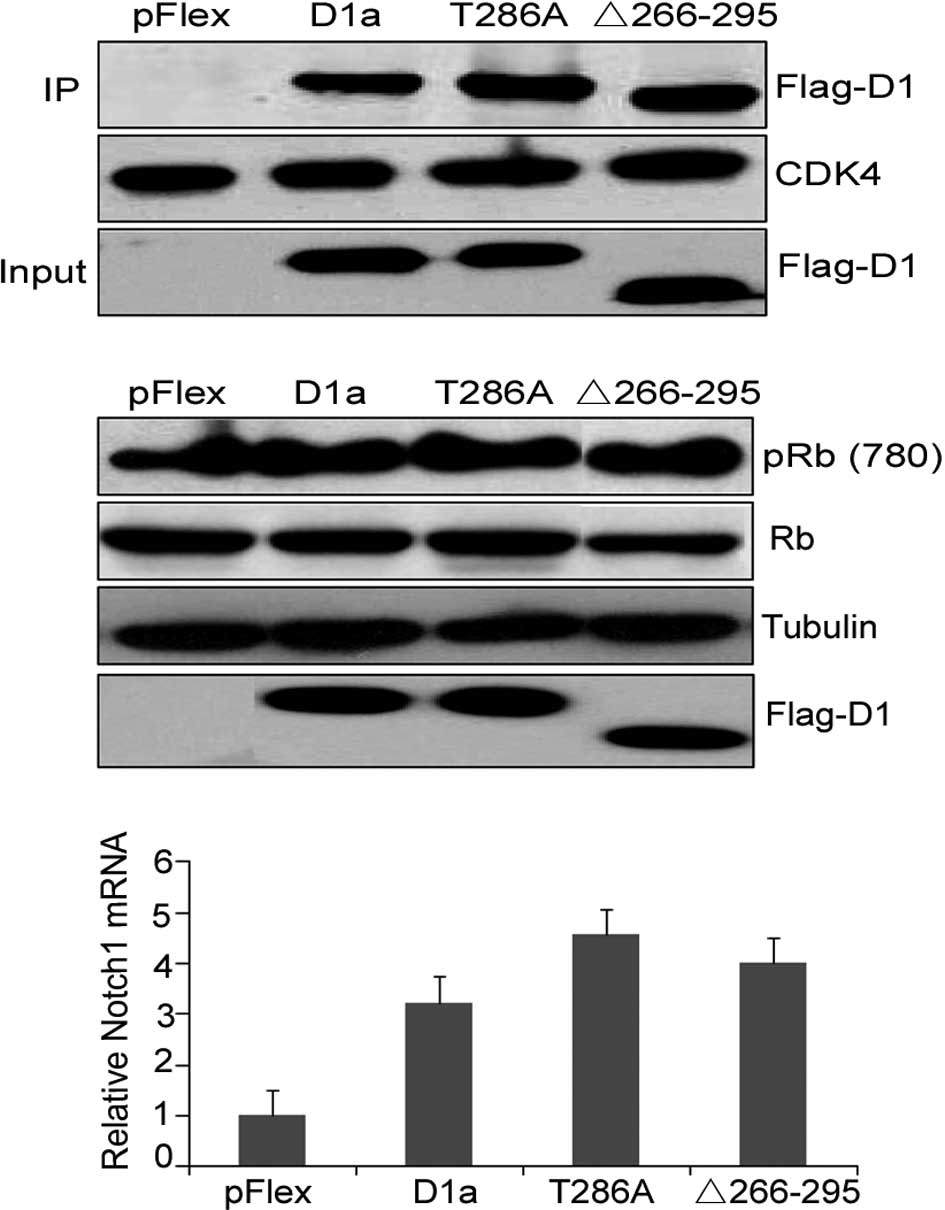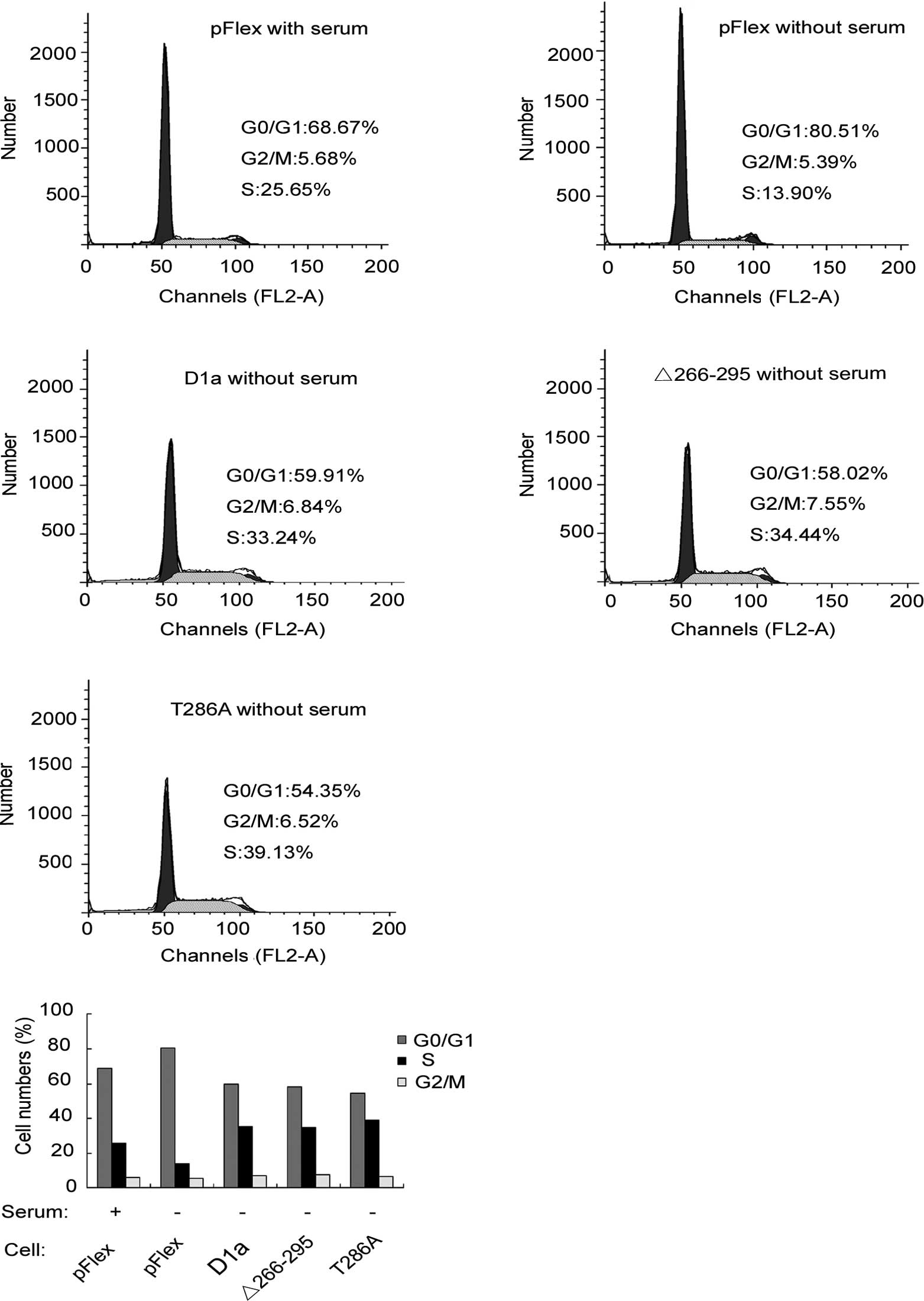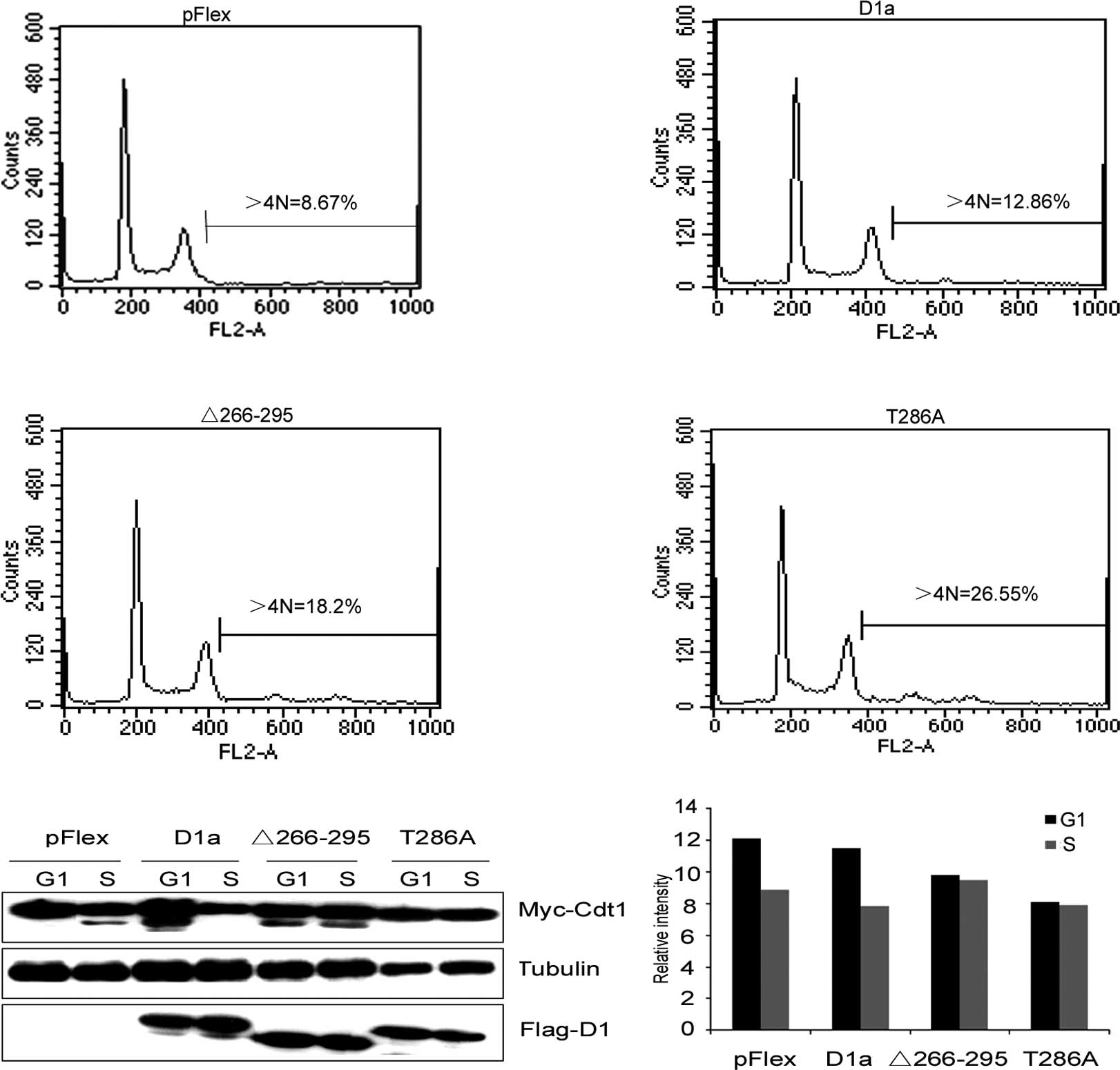|
1
|
Kato J, Matsushime H, Hiebert SW, Ewen ME
and Sherr CJ: Direct binding of cyclin D to the retinoblastoma gene
product (pRb) and pRb phosphorylation by the cyclin D-dependent
kinase CDK4. Genes Dev. 7:331–342. 1993. View Article : Google Scholar : PubMed/NCBI
|
|
2
|
Lundberg AS and Weinberg RA: Functional
inactivation of the retinoblastoma protein requires sequential
modification by at least two distinct cyclin-cdk complexes. Mol
Cell Biol. 18:753–761. 1998.PubMed/NCBI
|
|
3
|
Weinberg RA: The retinoblastoma protein
and cell cycle control. Cell. 81:323–330. 1995. View Article : Google Scholar : PubMed/NCBI
|
|
4
|
Coqueret O: Linking cyclins to
transcriptional control. Gene. 299:35–55. 2002. View Article : Google Scholar : PubMed/NCBI
|
|
5
|
Bienvenu F, Jirawatnotai S, Elias JE, et
al: Transcriptional role of cyclin D1 in development revealed by a
genetic-proteomic screen. Nature. 463:374–378. 2010. View Article : Google Scholar : PubMed/NCBI
|
|
6
|
Fu M, Rao M, Bouras T, et al: Cyclin D1
inhibits peroxisome proliferator-activated receptor gamma-mediated
adipogenesis through histone deacetylase recruitment. J Biol Chem.
280:16934–16941. 2005. View Article : Google Scholar
|
|
7
|
Gladden AB and Diehl JA: Location,
location, location: the role of cyclin D1 nuclear localization in
cancer. J Cell Biochem. 96:906–913. 2005. View Article : Google Scholar : PubMed/NCBI
|
|
8
|
Deshpande A, Sicinski P and Hinds PW:
Cyclins and cdks in development and cancer: a perspective.
Oncogene. 24:2909–2915. 2005. View Article : Google Scholar : PubMed/NCBI
|
|
9
|
Gillett C, Smith P, Gregory W, et al:
Cyclin D1 and prognosis in human breast cancer. Int J Cancer.
69:92–99. 1996. View Article : Google Scholar : PubMed/NCBI
|
|
10
|
Sicinski P, Donaher JL, Parker SB, et al:
Cyclin D1 provides a link between development and oncogenesis in
the retina and breast. Cell. 82:621–630. 1995. View Article : Google Scholar : PubMed/NCBI
|
|
11
|
Bartkova J, Lukas J, Strauss M and Bartek
J: The PRAD-1/cyclin D1 oncogene product accumulates aberrantly in
a subset of colorectal carcinomas. Int J Cancer. 58:568–573. 1994.
View Article : Google Scholar : PubMed/NCBI
|
|
12
|
Bartkova J, Lukas J, Muller H, Strauss M,
Gusterson B and Bartek J: Abnormal patterns of D-type cyclin
expression and G1 regulation in human head and neck cancer. Cancer
Res. 55:949–956. 1995.PubMed/NCBI
|
|
13
|
Hibberts NA, Simpson DJ, Bicknell JE, et
al: Analysis of cyclin D1 (CCND1) allelic imbalance and
overexpression in sporadic human pituitary tumors. Clin Cancer Res.
5:2133–2139. 1999.PubMed/NCBI
|
|
14
|
Hemmer S, Wasenius VM, Haglund C, et al:
Deletion of 11q23 and cyclin D1 overexpression are frequent
aberrations in parathyroid adenomas. Am J Pathol. 158:1355–1362.
2001. View Article : Google Scholar : PubMed/NCBI
|
|
15
|
Ikeguchi M, Sakatani T, Ueta T and Kaibara
N: Cyclin D1 expression and retinoblastoma gene protein (pRB)
expression in esophageal squamous cell carcinoma. J Cancer Res Clin
Oncol. 127:531–536. 2001. View Article : Google Scholar : PubMed/NCBI
|
|
16
|
Jin M, Inoue S, Umemura T, et al: Cyclin
D1, p16 and retinoblastoma gene product expression as a predictor
for prognosis in non-small cell lung cancer at stages I and II.
Lung Cancer. 34:207–218. 2001. View Article : Google Scholar : PubMed/NCBI
|
|
17
|
Alt JR, Cleveland JL, Hannink M and Diehl
JA: Phosphorylation-dependent regulation of cyclin D1 nuclear
export and cyclin D1-dependent cellular transformation. Genes Dev.
14:3102–3114. 2000. View Article : Google Scholar : PubMed/NCBI
|
|
18
|
Bodrug SE, Warner BJ, Bath ML, Lindeman
GJ, Harris AW and Adams JM: Cyclin D1 transgene impedes lymphocyte
maturation and collaborates in lymphomagenesis with the myc gene.
EMBO J. 13:2124–2130. 1994.PubMed/NCBI
|
|
19
|
Lovec H, Grzeschiczek A, Kowalski MB and
Moroy T: Cyclin D1/bcl-1 cooperates with myc genes in the
generation of B-cell lymphoma in transgenic mice. EMBO J.
13:3487–3495. 1994.PubMed/NCBI
|
|
20
|
Gladden AB, Woolery R, Aggarwal P, Wasik
MA and Diehl JA: Expression of constitutively nuclear cyclin D1 in
murine lymphocytes induces B-cell lymphoma. Oncogene. 25:998–1007.
2006. View Article : Google Scholar : PubMed/NCBI
|
|
21
|
Diehl JA, Zindy F and Sherr CJ: Inhibition
of cyclin D1 phosphorylation on threonine-286 prevents its rapid
degradation via the ubiquitin-proteasome pathway. Genes Dev.
11:957–972. 1997. View Article : Google Scholar : PubMed/NCBI
|
|
22
|
Germain D, Russell A, Thompson A and
Hendley J: Ubiquitination of free cyclin D1 is independent of
phosphorylation on threonine 286. J Biol Chem. 275:12074–12079.
2000. View Article : Google Scholar : PubMed/NCBI
|
|
23
|
Diehl JA, Cheng M, Roussel MF and Sherr
CJ: Glycogen synthase kinase-3beta regulates cyclin D1 proteolysis
and subcellular localization. Genes Dev. 12:3499–3511. 1998.
View Article : Google Scholar : PubMed/NCBI
|
|
24
|
Lu F, Gladden AB and Diehl JA: An
alternatively spliced cyclin D1 isoform, cyclin D1b, is a nuclear
oncogene. Cancer Res. 63:7056–7061. 2003.PubMed/NCBI
|
|
25
|
Benzeno S, Lu F, Guo M, et al:
Identification of mutations that disrupt phosphorylation-dependent
nuclear export of cyclin D1. Oncogene. 25:6291–6303. 2006.
View Article : Google Scholar : PubMed/NCBI
|
|
26
|
Moreno-Bueno G, Rodriguez-Perales S,
Sanchez-Estevez C, et al: Cyclin D1 gene (CCND1) mutations in
endometrial cancer. Oncogene. 22:6115–6118. 2003. View Article : Google Scholar : PubMed/NCBI
|
|
27
|
Cobrinik D: Pocket proteins and cell cycle
control. Oncogene. 24:2796–2809. 2005. View Article : Google Scholar : PubMed/NCBI
|
|
28
|
Shinozaki H, Ozawa S, Ando N, et al:
Cyclin D1 amplification as a new predictive classification for
squamous cell carcinoma of the esophagus, adding gene information.
Clin Cancer Res. 2:1155–1161. 1996.PubMed/NCBI
|
|
29
|
Shamma A, Doki Y, Shiozaki H, et al:
Cyclin D1 overexpression in esophageal dysplasia: A possible
biomarker for carcinogenesis of esophageal squamous cell carcinoma.
Int J Oncol. 16:261–266. 2000.PubMed/NCBI
|
|
30
|
Leveque C, Marsaud V, Renoir JM and Sola
B: Alternative cyclin D1 forms a and b have different biological
functions in the cell cycle of B lymphocytes. Exp Cell Res.
313:2719–2729. 2007. View Article : Google Scholar : PubMed/NCBI
|
|
31
|
Guo Y, Yang K, Harwalkar J, et al:
Phosphorylation of cyclin D1 at Thr 286 during S phase leads to its
proteasomal degradation and allows efficient DNA synthesis.
Oncogene. 24:2599–2612. 2005. View Article : Google Scholar : PubMed/NCBI
|
|
32
|
Yang K, Guo Y, Stacey WC, et al: Glycogen
synthase kinase 3 has a limited role in cell cycle regulation of
cyclin D1 levels. BMC Cell Biol. 7:332006. View Article : Google Scholar : PubMed/NCBI
|
|
33
|
Alao JP, Stavropoulou AV, Lam EW, Coombes
RC and Vigushin DM: Histone deacetylase inhibitor, trichostatin A
induces ubiquitin-dependent cyclin D1 degradation in MCF-7 breast
cancer cells. Mol Cancer. 5:82006. View Article : Google Scholar
|
|
34
|
Feng Q, Sekula D, Muller R, Freemantle SJ
and Dmitrovsky E: Uncovering residues that regulate cyclin D1
proteasomal degradation. Oncogene. 26:5098–5106. 2007. View Article : Google Scholar : PubMed/NCBI
|
|
35
|
Agami R and Bernards R: Distinct
initiation and maintenance mechanisms cooperate to induce G1 cell
cycle arrest in response to DNA damage. Cell. 102:55–66. 2000.
View Article : Google Scholar : PubMed/NCBI
|
|
36
|
Alao JP: The regulation of cyclin D1
degradation: roles in cancer development and the potential for
therapeutic invention. Mol Cancer. 6:242007. View Article : Google Scholar : PubMed/NCBI
|
|
37
|
Lin DI, Lessie MD, Gladden AB, Bassing CH,
Wagner KU and Diehl JA: Disruption of cyclin D1 nuclear export and
proteolysis accelerates mammary carcinogenesis. Oncogene.
27:1231–1242. 2008. View Article : Google Scholar : PubMed/NCBI
|
|
38
|
Truong LN and Wu X: Prevention of DNA
re-replication in eukaryotic cells. J Mol Cell Biol. 3:13–22. 2011.
View Article : Google Scholar : PubMed/NCBI
|
|
39
|
Aggarwal P, Lessie MD, Lin DI, et al:
Nuclear accumulation of cyclin D1 during S phase inhibits
Cul4-dependent Cdt1 proteolysis and triggers p53-dependent DNA
rereplication. Genes Dev. 21:2908–2922. 2007. View Article : Google Scholar : PubMed/NCBI
|
|
40
|
Spruck CH, Won KA and Reed SI: Deregulated
cyclin E induces chromosome instability. Nature. 401:297–300. 1999.
View Article : Google Scholar : PubMed/NCBI
|
|
41
|
Tort F, Bartkova J, Sehested M, Orntoft T,
Lukas J and Bartek J: Retinoblastoma pathway defects show
differential ability to activate the constitutive DNA damage
response in human tumorigenesis. Cancer Res. 66:10258–10263. 2006.
View Article : Google Scholar : PubMed/NCBI
|















